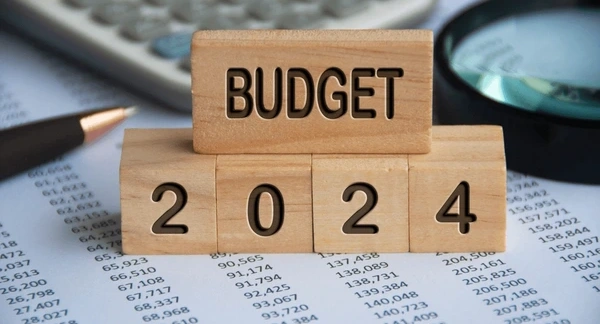Tax relief on pension contributions in the UK is a valuable incentive for people to save for their retirement. The government provides tax relief to encourage people to save for their own future, rather than relying on state pensions. In this article, we will explain what tax relief is, how it works, and the benefits it provides to UK citizens.
What is tax relief on pension contributions?
Tax relief is the amount of tax that you don’t have to pay or get back from the government. It is provided by the government and is intended to encourage people to save for their retirement. When you make contributions to your pension plan, the government offers tax relief on some or all of your contributions, depending on how much you pay into your pension and your personal tax circumstances.
How does tax relief on pension contributions work?
The amount of tax relief you receive on your pension contributions is based on the rate of income tax you pay. For example, basic rate taxpayers receive 20% tax relief, while higher and additional rate taxpayers receive 40% or 45% respectively.
If you are a basic rate taxpayer and you pay £100 into your pension, the government will add £20 of tax relief, making your total pension contribution £120. If you are a higher rate taxpayer, which is someone who pays between £50,271 and £125,140 per year, you will receive 40% tax relief. So, for a £100 contribution, you would receive £40 tax relief from the government.
There is one important condition attached to tax relief on pension contributions. You can only receive tax relief on contributions up to the annual allowance, which is currently £60,000. This means that if you contribute more than £60,000, you will not receive tax relief on the excess amount. However, you may be able to carry forward unused allowance from the previous three years.
It is also worth noting that if you are a higher earner, you may have to pay a reduced annual allowance.
What are the benefits of tax relief on pension contributions?
There are several benefits to receiving tax relief on your pension contributions. Here are some of the key advantages:
- Boost your pension savings
Tax relief provides an automatic boost to your pension savings, making it easier to build up a retirement nest egg. The more you contribute to your pension, the more tax relief you receive, which means you can accumulate more retirement savings over time.
- Reduce your tax bill
Tax relief also helps reduce your tax bill by decreasing the amount of income tax that you pay. This is done by expanding your basic rate and higher rate tax bands.
- Retirement planning
By providing tax relief on pension contributions, the government is encouraging people to take responsibility for their own retirement planning. It is a way of incentivising UK citizens to start saving early and regularly for their future, rather than relying solely on state pension schemes.
- Employer contributions
Employer contributions to a workplace pension scheme also receive tax relief. This means that you can benefit from both your own contributions, and those made on your behalf by your employer. It is a useful way to maximise your retirement savings potential.
Conclusion:
Tax relief on pension contributions is an important incentive in the UK to encourage people to save for their retirement. It provides a valuable financial boost to your pension savings, helps reduce your tax bill and encourages people to take responsibility for their future retirement planning. Make sure you take advantage of this incentive when making pension contributions and seek professional advice if you are unsure about how much you can contribute and benefit from tax relief.
FAQs:
Here are some FAQs about pension schemes and pension contributions in the UK:
Q: What is a pension scheme?
A: A pension scheme is a type of savings plan designed to provide an income in retirement. It requires regular contributions from the member, as well as possible contributions from their employer and the government.
Q: What types of pension schemes are there?
A: There are two main types of pension schemes in the UK: defined benefit and defined contribution. Defined benefit schemes provide a guaranteed income based on factors such as your salary and length of service. Defined contribution schemes involve contributions being invested to build up a retirement pot, and the amount you have at retirement depends on market performance and how much you have contributed.
Q: Can I have more than one pension scheme?
A: Yes, you can have multiple pension schemes. For example, you may have a defined benefit scheme with your current employer and a defined contribution scheme from previous employment. You can also have a personal pension if you are self-employed or if your employer doesn’t offer a pension scheme.
Q: How much should I contribute to my pension scheme?
A: The amount you should contribute depends on your income, retirement goals, and other financial commitments. As a rough guide, experts recommend contributing at least 10-15% of your income to your pension scheme, including any employer contributions.
Q: Is my employer required to contribute to my pension?
A: If you are enrolled in a workplace pension scheme, your employer is required to contribute a minimum amount. The current minimum contribution is 3% of your qualifying earnings, which will rise to 5% in April 2021.
Q: Can I contribute more than the minimum to my workplace pension?
A: Yes, you can contribute more than the minimum required by your employer. This can help to boost your retirement pot and may have tax benefits, depending on your circumstances.
Q: What tax benefits are there to contribute to a pension?
A: Contributing to a pension can have tax benefits, as your contributions are deducted from your taxable income. This can bring you into a lower tax bracket and reduce your overall tax bill. However, there are limits to how much you can contribute tax-free each year and over your lifetime.
Q: Can I withdraw my pension contributions before retirement?
A: In most cases, you cannot withdraw your pension contributions before reaching the age of 55. There are some exceptions, such as serious ill health or if you have a protected pension age.
How we can help?
If you are a basic rate taxpayer, 20% tax relief is automatically applied to your pension contributions. However, if you are a higher rate or additional rate taxpayer, you may need to submit a self assessment tax return to claim additional relief.
We can help you plan your pension contributions by providing tax advice in relation to your pension contributions.
Feel free to book a consultation by filling in the form below or by calling 020 7859 4047.





